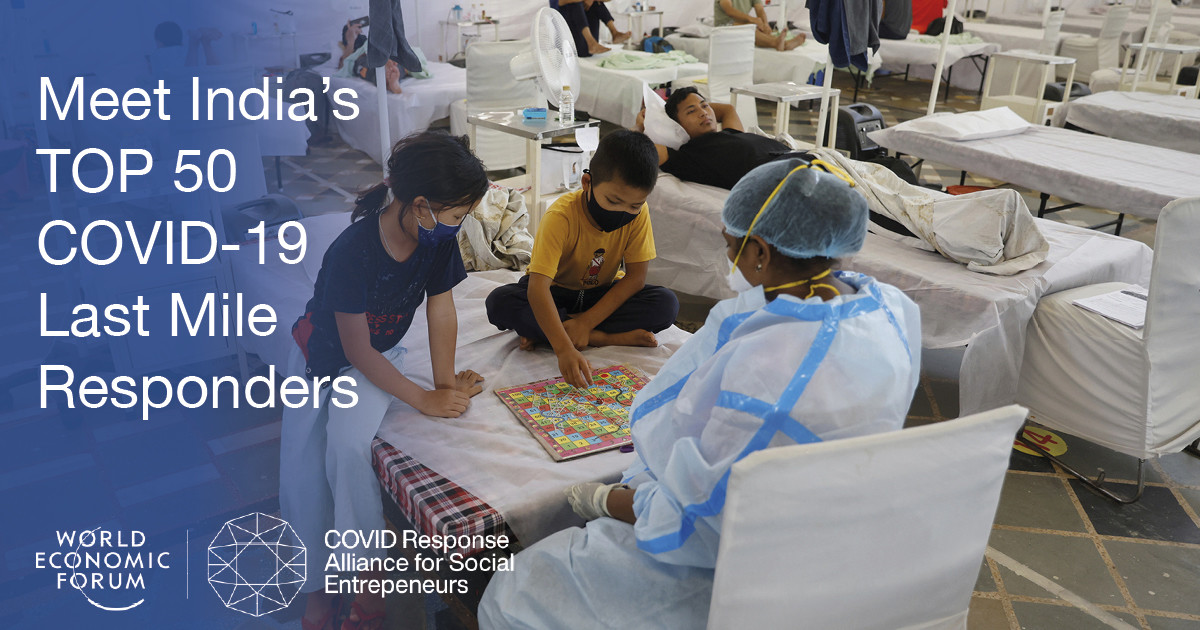COVID-19: What you need to know about the coronavirus pandemic on 6 October

A COVID-19 lockdown remains in place in Sydney, Australia.
Image: REUTERS/Loren Elliott
Explore and monitor how COVID-19 is affecting economies, industries and global issues
Stay up to date:
COVID-19
- This daily round-up brings you a selection of the latest news and updates on the COVID-19 coronavirus pandemic, as well as tips and tools to help you stay informed and protected.
- Top stories: Demand for rapid COVID-19 tests surging in US; India court orders compensation for COVID-19 deaths; AstraZeneca requests emergency US approval for antibody shot.
1. How COVID-19 is affecting the globe
Confirmed cases of COVID-19 have passed 235.8 million globally, according to Johns Hopkins University. The number of confirmed deaths stands at more than 4.81 million. More than 6.36 billion vaccination doses have been administered globally, according to Our World in Data.
New daily COVID-19 cases have fallen in Australia, with authorities looking to ease tough restrictions as vaccination rates rise.
South Korea will start vaccinating pregnant women against COVID-19. The country is accelerating its vaccination drive in an effort to immunize 80% of adults by the end of October.
Spain has approved booster shots of the Pfizer/BioNTech and Moderna COVID-19 vaccines in people aged 70 and over.
AstraZeneca has requested emergency approval from US regulators for its COVID-19 anitbody shot - the first such jab, other than vaccines, against COVID-19.
New COVID-19 cases reported in Britain between 29 September and 5 October were down 2.3% compared to the previous seven days.
Singapore has reported its highest single-day rise in confirmed new COVID-19 cases since the start of the pandemic.
Turkey reported 29,802 new COVID-19 cases yesterday, the highest figure since 30 April. Health Minister Fahrettin Koca urged citizens to get vaccinated and follow personal hygiene and distancing measures.
Romania's new confirmed COVID-19 cases have exceeded 15,000 and there were no available intensive care beds available on Tuesday, the government said.
COVID-19-related deaths have exceeded 300 in Ukraine for the first time since mid-May.
Researchers think 'COVID toe' - chilblain-like lesions on toes and fingers - seems to be a side effect of the body's attempts to fight off the virus.

2. Demand for rapid COVID-19 tests surging in the US
Officials say that rapidly rising demand for COVID-19 tests from employers in the United States is exacerbating a nationwide shortage of rapid tests.
Test makers are scaling up production, but significantly boosting output could take weeks to months, industry executives told Reuters.
"Employer demand has gone crazy," said Quidel Chief Executive Doug Bryant. "We won't be able to meet all the requests that we're having."
Nearly a dozen state governments said they are grappling with shortages of rapid tests, which provide on-the-spot results within minutes and are crucial for COVID-19 surveillance programmes.
US employers have been stockpiling tests after the White House said it plans to mandate weekly testing for unvaccinated staff at businesses with more than 100 employees.
Accept our marketing cookies to access this content.
These cookies are currently disabled in your browser.
3. India's top court orders compensation for COVID-19 deaths
India's top court has ordered state authorities to pay 50,000 rupees ($672) as compensation for each death caused by COVID-19, according to its order reviewed by Reuters.
India has recorded nearly half a million deaths in total, but experts say this is likely significantly short of the real total.
Petitioners had appealed to the Supreme Court to provide at least eight times the compensation, or 400,000 rupees, under the National Disaster Management Authority, through which the government provides some financial help in natural disasters such as earthquakes.
India’s leading COVID-19 last-mile responders
The government, in its affidavit, which was approved by the top court, agreed to the minimum payable amount to be disbursed by local authorities under the State Disaster Response Fund.
"All concerned authority shall act as a helping hand, so as to wipe off the tears of those who have suffered due to loss of a family member due to COVID-19," the Supreme Court said in its order.
Don't miss any update on this topic
Create a free account and access your personalized content collection with our latest publications and analyses.
License and Republishing
World Economic Forum articles may be republished in accordance with the Creative Commons Attribution-NonCommercial-NoDerivatives 4.0 International Public License, and in accordance with our Terms of Use.
The views expressed in this article are those of the author alone and not the World Economic Forum.
Forum Stories newsletter
Bringing you weekly curated insights and analysis on the global issues that matter.
More on Health and Healthcare SystemsSee all
Sofiat Makanjuola-Akinola and Dr Zainab Shinkafi-Bagudu
May 19, 2025
Shyam Bishen and Lorna Friedman
May 19, 2025
Shyam Bishen
May 19, 2025





